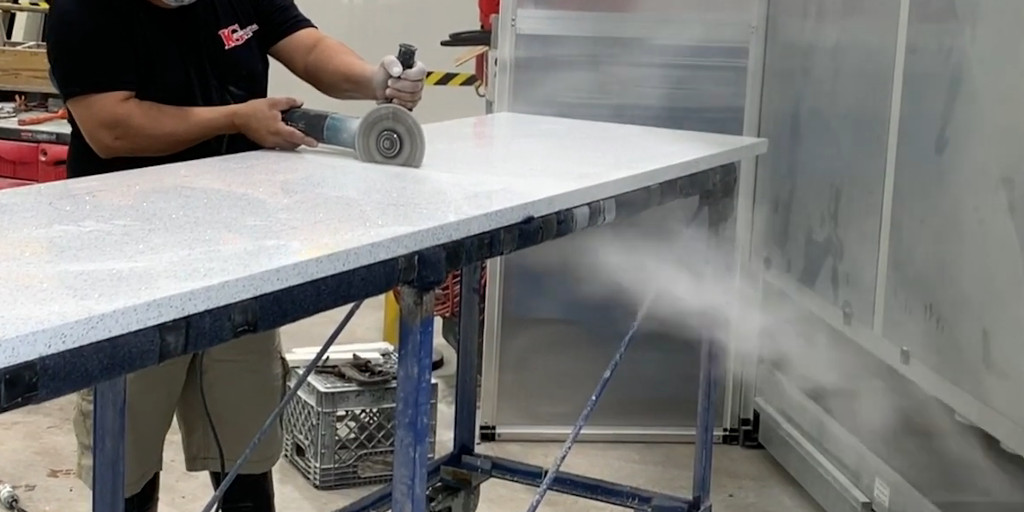Dust Collection and Industrial Environments
Industrial professions evolve, grow, and even come into existence regularly. As a result, the need for effective industrial dust collection systems grows ever more important. In addition to industrial changes, understanding how dust from various industries affects people expands. The result? Updated standards for dust mitigation, dust control, and dust management. In this article, we will explore dust collection and how it relates to industrial developments.
Dust Producing Industrial Professions
Dust is everywhere. We find it all around us. It comes in many forms and is generated in a number of ways. Dust is present in nature. However, it also is a byproduct resulting from very specific professions. In fact, you can see how many industries have to deal with dust by looking at the search results for “dust hazards” on the OSHA website. Dust is generated or produced by many professions including the following:
- Abrasive Blasters
- Autobody Workers
- Concrete Workers
- Dentists
- Fiberglass Repair Specialists
- Metal Fabricators
- Milling Workers
- Miners
- Porcelain Reglazing Pros
- Sculptors
- Stone Fabricators
- Woodworkers
If you are already aware of the various locations in your shop that you want to make use of dust collectors, feel fre to check out a specific dust collection solution here on the site. If not, keep reading and you may find some valuable info.
It might not be something that we think of all the time, but it is a truth. So many tasks just produce a lot of dust. Let’s look at some necessary tasks that span several industries.
Cutting Materials Makes Dust
It would be nearly impossible to perform significant work in many jobs without cutting materials. And if the material is hard, cutting has a tendency to generate dust. Whether an artisan is cutting metal, stone, porcelain, glass, concrete, or wood, you can be sure that there is dust being produced. But cutting is only one task that generates dust.
Grinding and Shaping
Cutting a material leaves one or more edges in a condiditon that is not necessary visually appealing. Take for example stone countertops. The edge of a slab that is cut must be shaped to remove the hard edge. This is done by using a grinding tool to shape the edge in one of several ways. This grinding can be done in a dry environment which produces more dust.
The Dusty Task of Sanding
One of the biggest generators of dust is perhaps sanding. The very act of sanding is designed to remove very small particles from the surface of a material so that the surface is smooth to the touch. The removal of those fine particles means they are dust.
Tasks Are Performed With Particles
There are even tasks that don’t necessarily generate dust but they make use of particulate matter to perform the task itself. one of these tasks is abrasive blasting. Perhaps the most commonly known form of this is sandblasting. However, there are many particles that are used for abrasive blasting. So in addition to the particles from the material your doing the blasting on, you may have the blasting substance (i.e. sand) in the air.
Several Kinds of Dust
You may have already concluded that there are a variety of particulates that can and do pollute the air surrounding a work environment. This is because of the variables that we have been discussing up to now. Any of the following can produce the need for an industrial collection system.
Industries Reducing Respirable Dust
As we have already seen, there are several tasks and professions the are inherently “dusty” because of their nature. Additionally, the materials listed above each have the potential to generate various amounts of dust.
Solutions for Industrial Dust Collection Systems
There are a variety of solutions as we mentioned at the beginning of this article that help with dust control. All sorts of industries benefit from having a dust collection system or systems in place. One of the more common ways of handling airborne particulates in many industry shops is to make use of a combination of dust collectors to work at removing the dust from the air at multiple points.
So, what is your industry? Is it one that we have touched on here? Does your shop need a dust collector? If so, one thing is for sure; you will most liely be able to find a an industrial dust collector to help you keep it under control.
Related posts:
Industrial Dust Collectors

